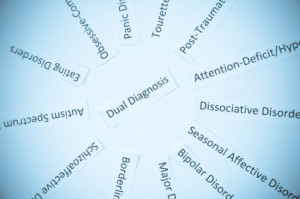- Calls to this hotline are currently being directed to Within Health, Fay or Eating Disorder Solutions
- Representatives are standing by 24/7 to help answer your questions
- All calls are confidential and HIPAA compliant
- There is no obligation or cost to call
- Eating Disorder Hope does not receive any commissions or fees dependent upon which provider you select
- Additional treatment providers are located on our directory or samhsa.gov
Research and the DSM: How do Findings Influence Diagnostic Criteria?

Contributor: Leigh Bell, BA, writer for Eating Disorder Hope
Research has a major impact on the Diagnostic and Statistical Manual of Mental Disorders (DSM), which is published by the American Psychiatric Association (APA) and used by clinicians to diagnose — and by insurance companies to cover — mental illness, including eating disorders.
The DSM provides criteria required to diagnose an individual with a mental illness, and this is crucial because a formal diagnosis opens doors to insurance coverage, disability support, school modifications, and more. The impact research has on these criteria was underscored about two years ago when the APA released the DSM-5, the first update to the diagnostic manual in 20 years.
What Revisions Have Been Made for the DSM-5?
Revisions made to the DSM-5 reflect vast amounts of sound research and clinical experience that occurred over the last two decades. Some of these revisions include criteria for the diagnosis of eating disorders.
One of the most dramatic changes is probably the inclusion of binge-eating disorder (BED), which had been in the appendix of the DSM-IV where it was classified under the more general diagnosis of Eating Disorder Not Otherwise Specified (EDNOS). Since that time, the APA reports, “extensive research … supported the clinical utility and validity” of BED1.
Opening Up the Diagnosis to Better Fit Men
 The latest DSM also eliminates amenorrhea (loss of menstrual cycle) from the list of criteria for anorexia nervosa, and while the previous edition provided a waiver of this criterion for males and women taking contraceptives, the complete removal of the criterion reflects studies that show a growing number of males have anorexia2
The latest DSM also eliminates amenorrhea (loss of menstrual cycle) from the list of criteria for anorexia nervosa, and while the previous edition provided a waiver of this criterion for males and women taking contraceptives, the complete removal of the criterion reflects studies that show a growing number of males have anorexia2
The DSM-5 lessened stringent criteria for specific eating disorders, such as removing the requirement for someone with anorexia nervosa to be 85% or less than their recommended body weight. This, along with the addition of BED as a formal diagnosis and other changes, mean fewer individuals fall in the EDNOS category, which studies have shown is less likely to be diagnosed and/or covered by insurance3.
A Community of Eating Disorder Professionals and Advocates
Work on the DSM-5 actually began in 1999 and is the result of a wide-scale collaboration of the DSM-5 Task Force and 13 Work Groups, which together include more than 160 mental-health and medical professionals, including mostly psychologists and psychiatrists, but also social workers, nurses, physicians, etc.4
Community Discussion – Share your thoughts here!
How have the DSM-5 changes impacted your personal struggle with an eating disorder? Were you aware of the changes in classifications?
About the Author:
Leigh Bell holds a Bachelor of Arts in English with minors in Creative Writing and French from Loyola Marymount University in Los Angeles. She is a published author, journalist with 15 years of experience, and a recipient of the Rosalynn Carter Fellowship for Mental Health Journalism. Leigh is recovered from a near-fatal, decade-long battle with anorexia and the mother of three young, rambunctious children.
References:
- Highlights Of Changes From DSM-IV-TR To DSM-5, American Psychiatric Association.
- Collier R. (2013).Treatment challenges for men with eating disorders. Canadian Medical Association Journal, 185(3), 137-138.
- Mellace, J. (2010). Eating Disorders Not Otherwise Specified — Real disorders, real risks. Social Work Today, 10(4), 14.
- The people behind DSM-5, American Psychiatric Association.
Last Updated & Reviewed By: Jacquelyn Ekern, MS, LPC on July 22nd, 2015
Published on EatingDisorderHope.com

The EatingDisorderHope.com editorial team comprises experienced writers, editors, and medical reviewers specializing in eating disorders, treatment, and mental and behavioral health.

